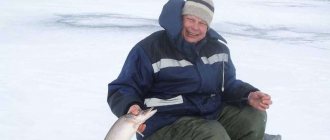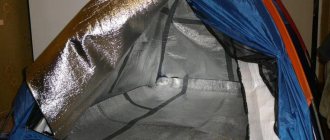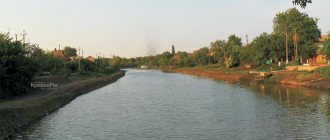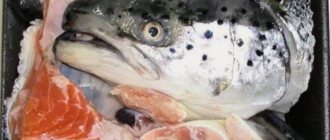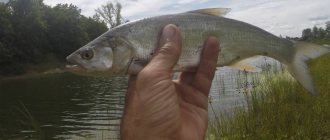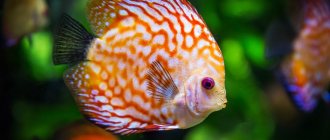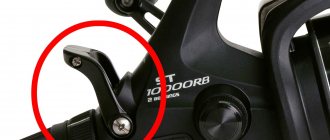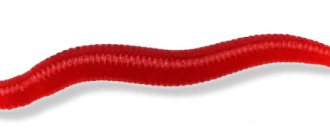Snoring water bodies will help deter poachers
In hot weather, you can combine swimming with a useful activity.
Photo: Shelyaga Gennady. It is much more pleasant to direct your efforts to creative actions, and if everyone thought this way, then everything would be simpler.
Life would be better, and I would live longer and happier.
Unfortunately, due to a handful of individuals with a criminal mindset, great restrictions have to be placed on the majority of honest and decent people.
A truly social and decent person thinks about how to make honest money so that he and everyone around him will feel good.
Such a person thinks about how to make money without breaking the law and without committing acts for which he will be subject to public censure, and will simply be ashamed.
An antisocial person with a criminal mindset thinks about how to deceive, steal, how to come up with a scheme to do nothing, while the money drips into his pocket.
Even if there is a legal and decent source of income nearby, he will definitely choose another “gray” one, where there are many secrets and mysteries.
This is how the human mind works.
Why am I writing about all this? We all face the problem of poaching. It can be hardened and open, when people simply do not want to work honestly and make a poor living.
| These simple devices will help protect your pond from poachers. Photo: Shelyaga Gennady. |
It’s interesting that they often forget that they put a lot of work into this very poaching, evading law enforcement agencies, which also costs a lot of effort.
How to protect your favorite bodies of water?
And there is everyday poaching, to which many are quite loyal. “Well, just think, I set up a path - but what if the fish don’t bite? After all, I caught a little, only by ear!”
Read the material “The fisherman and his place in the modern world”
So it turns out that good bodies of water, where you can spend time doing your favorite pastime, are quickly identified by these same “different types of poachers.” They visit them as long as there is enough fish there, and then switch to others where they can get some free money.
What to do about it?
We need to somehow protect our favorite bodies of water from those for whom the words “honesty,” “decency,” and “creativity” have no meaning. And the word “conscience” for them generally has a cosmic meaning - this does not exist on our Earth, it exists somewhere in another Universe.
If you talk to them about this, they will immediately throw out a bunch of excuses about how officials and politicians steal.
They will tell you how they were wronged by their own country and how someone is stealing billions.
The easiest way to snag
Posting security guards at water bodies is very expensive and not always possible. It is not always possible to monitor in person and call the fisheries inspectorate. It remains impossible to complicate the life of poachers by choking the reservoir.
Firstly, fish love to live and hide in underwater shelters, in the form of trees, trunks, snags and stumps dumped in the water.
Secondly, it is difficult to install nets in snags, because they will cling, tear and not be fully installed, preventing barbaric fishing.
I've been thinking a lot about how to protect our pond from netting. The idea came to mind to stretch several ropes under water at a depth of 20–30 cm in places where nets could be installed. However, my comrades suggested this option to me in the form of snagging.
Read the material “Stop the poacher: what can the prosecutor’s office do?”
Perhaps the easiest way to snag is to cut down dead or unwanted trees on the shore so that they fall into the water. Small branches can be brought in by boat or by swimming in the warm season. However, they need to be secured with stronger driftwood, or with weight stones to the bottom.
Hooks are better than no bites
Naturally, this must be done in such a way as to leave space for fishing and at the same time prevent the installation of nets. I can say that it is better to fish where there are a lot of hooks than where there are no fish. You have to choose the lesser of evils.
It is better to place branches and trees in a pond so that some of them are visible on the surface, and the other part remains invisible. Let this be a kind of surprise for poachers, which will create big problems for them.
I don’t think that anyone who installs nets will spend time clearing the pond of snags. Social and creative people, such as sports fishermen and amateur fishermen, for whom the number of fish caught is not the most important thing, are capable of this, as well as other good deeds.
In this case, they do not have to clean it, but, on the contrary, snarl it in order to save the fish from “those who are hungry and do not want to work.”
| You need to tie a small number of small trees so as not to strain yourself while dragging it all into the water. Photo: Shelyaga Gennady. |
My personal experience
In my summer cottage pond I did it simply. Given its small size, I prepared a certain number of small trees cut down while clearing power lines. I tried to choose ones that were not very heavy, 3-4 meters high, cut off small branches on them, and then tied them together.
In order not to strain too much, I tied 3-4 trees from the trunk to the top of the head. To anchor my pond, I chose a hot day, when the water was already warm enough to do all this without a boat, but simply by swimming.
First, I swam with this string of trees, installed it in the right place, and then secured it with fishing bridges, trunks that had fallen into the water, and to the bottom with the help of stones tied to ropes.
Thus, I did not leave poachers a single promising place where it would be possible to fully install a net or install a path.
Read the material “How to fight poachers”
I will be happy to hear comments and suggestions from readers on how else we can prevent poachers.
Gennady Shelyag June 29, 2021 at 11:37
Ordinary fishermen complained that Rybnadzor was “making a plan” against them. Inspectors immediately went to the scene...
We are preparing material about the work of the Fisheries Inspectorate (we will publish it on Monday), at the same time a message has arrived that once again highlighted the inadequate focus of the department’s work on ordinary fishermen. Let us remind you that the day before yesterday we published another report by Evgeny Sofronov from fishing on Sviyag. They showed how freely they can set nets on the river in broad daylight. At the same time, it is easier for inspectors to catch those who are sitting with a fishing rod. We quote:
The “correct” fisherman (as Sofronov ironically described the Ulpress poachers) is not afraid of fish inspectors, he knows that there are few of them and that they do not have boats. There is also a shortage of gasoline. And it is unlikely that the fisheries inspectorate will wait for this category of fishermen, since the “right” fisherman always needs to be caught by the hand, i.e. with tackle in hand. And one who is not caught is not a thief! It is much easier for the fisheries inspection to catch the “wrong” fisherman; to do this, you just need to look in his backpack or in his fish tank. You can measure the fish with a ruler. You can also weigh the catch with a steelyard and for an excess of more than 5 kg. give the fisherman a certain amount. What did you want, fish with a rod and catch a fish and not receive a “bonus” for the pleasure? Fuck you!
“Correct” fishermen are usually law-abiding and respect the Water Code. They NEVER park their cars near the river bank, but carefully hide them 200 meters from the water. If you place it further, you will bring more! “Wrong” fishermen do not comply with the water law. They are lazy and always try to park their car near the river, which is precisely why the fisheries inspectorate loves the “wrong” fishermen. The more “wrong” and lazy fishermen on the river, the more money there will be in the treasury.
And how he looked into the water.
He sent such a letter yesterday. The author is one of the retired fishermen: After your article in Ul.Press today at 9 o’clock we arrived in this UAZ Rybnadzor and started skinning for small bream less than 25 cm. I tell them that we didn’t call you for this, but they say just Once you arrive, you don’t want to leave empty-handed!
The boy next to me stood for 1 bream and a protocol was drawn up. Is it possible to treat this way? They were asked to put things in order with the networks, but they are fleecing pensioners?
With such actions, the inspectors once again demonstrated how their activities are directed against ordinary fishermen. From which it is much easier to collect a fine by measuring an undergrowth bream with a ruler. And this is at a time when our water bodies are literally covered with nets. Quote from the comment under Sofronov’s post the day before yesterday:
“From Cheremshan to the Volga, from the Volga to Cheremshan - the same networks. Near the city, no one is afraid of inspectors. Awww - where are they? Probably only in films about fearless environmentalists. And how many scandalous situations there have been... True conservationists have retired, and the “imaginary” ones catch and hunt themselves, or have moved to Moscow from possible justice at the end of their activities.”
Begin with yourself
Having driven out onto the next country road, the police pay attention to fresh traces of the car, which lead towards the Kapchagai reservoir. It is here, in the area of the small town of Chilik, that the Ili River flows into Kapchagai. And it is from here and right up to the border with China that fishing is prohibited at any time of the year.
- These are spawning grounds. It is relatively shallow here, the so-called backwater, that is, here the river flows into the reservoir and it is here that the fish come in the spring to spawn. That’s why there is a year-round ban in this area,” says Maksat Karibaev, . — In recent years, another problem has appeared. Despite international legislation on the use of transboundary rivers, the Chinese side takes more than the required amount of water, as a result of which we have shallowing here. Over the past couple of years, the water has receded approximately two to two and a half kilometers. That is, here where we are standing there should be a depth of about two and a half meters. So imagine that in the spring the fish come here to spawn, shed their eggs, and after a while our neighbors partially block the river - we have shallowing, and all the eggs die.
The environmental inspectors were right. On the shore, just in the restricted area, four fishermen settled down. A dozen zakids bent in the wind, slightly jingling their bells.
- Yes, we just arrived. We thought about catching some fish, sitting and relaxing,” says one of the fishermen. — Do you know that in this area the fishing ban is valid all year round? For any gear. This is a spawning zone,” Burkytbek Dadanbekov asks. - Well, we don’t set up nets, we just catch by casting. It’s the others here who are catching with nets,” one of the men justifies himself. “Who puts the nets here, show me,” the policeman continues. - These are strange people. You immediately begin to move the arrows that someone is installing networks. And you need to start with yourself. If it’s prohibited to fish here, don’t fish. You can't throw garbage - don't throw it, take it with you. What do others have to do with it when the violation is yours? Why blame others and protect yourself? I say again, you need to start with yourself.
Despite the fact that the conversation was quite friendly, the police demanded to collect gear and leave the fishing spot, having previously drawn up administrative reports on the violators.
Real barbarians
“Of course, this is not the worst violation,” explains Burkytbek Dadanbekov. — Much greater damage to nature is caused by the so-called “electricians.” These are poachers who
poachers with electric fishing rod
When fishing, they use electric fishing rods. Most often, they find a hole in which a large fish is standing and give an electric shock to the water. This kills all living things within a radius of several tens of meters. Adults are especially affected, because their area of contact with water is much larger than that of smaller fish. Some are collected by poachers. The other one simply dies. If you see seagulls circling over the water somewhere or predators near the shore, it means that after the “electricians” the dead fish are collected.
Another type of poaching - fishing with a monofilament net (or simply made from fishing line) cannot be called more humane either. The fact is that, due to their low cost, they are most often used by poachers only once: it is easier to throw it away than to untangle it. And, naturally, no one wants to take it with them after catching. So they throw it in the water, where a web of material that does not decompose in nature becomes a death trap not only for fish. Birds and muskrats often get caught in these nets and simply die.
“This type of network is completely prohibited here,” explains Colonel Dadanbekov. - However, they are being used more and more often
Monofilament networks
because they cost pennies. For example, 100 meters costs about a thousand tenge. Who would want to fuss and untangle them later? Balkhash has now retreated. There, after all, the entire coastline is covered with hundreds of kilometers of such abandoned gear.
Confessions of an old poacher
Photo: Andrey Yanshevsky.
A few days later, the owner of the boat appreciated my efforts and began to leave me the least valuable part of the catch, and one day he even took me with him to check the net.
So my fish production began with poaching, which continued a year later, but in a completely different place.
Before the first grade of school, my grandmother took me with her to her sister, who worked all her life in the village of Nikolskoye, where the first fish hatchery in Russia named after. V.P. Vrassky.
While picking mushrooms, my second cousin and I, deep in the forest, discovered a nook of a stream that connected fish ponds.
And in this quiet and deserted place we noticed several large fish of a breed unknown to us.
For our next trip to pick mushrooms, we prepared sticks with forks tied to them.
As a result of a successful hunt, the grandmothers were presented with four peleds.
We got it in full - for stealing fish, for spoiled forks, for dirty clothes, but they shared the fishmonger from the village oven with us.
The next day, my grandfather made us a fishing rod and sent us to catch fish with honest labor.
| Whitefish loves bloodworms and thin line. Photo: Andrey Yanshevsky. |
We went to Nikolskoye for several years, and when I was already ten, and I had quite well mastered fishing for perches and small bream with a fishing rod, I was given training to a relative who worked as a foreman of a fish production team on Lake Velye.
Uncle Pavel, as everyone called him, began by showing me the most catchy places with large perch, bream, ripus, smelt and trout. But, since the weather that day was on the verge of safe navigation, they decided to use the nets for pike and tench. When the gear was set up, we went to “carry out the plan” by catching pike on girders.
This was the first example for me when we caught more with permitted fishing nets than with nets prohibited for recreational fishing.
Pavel not only unwittingly proved to me that amateur gear can compete with fishing gear, but a few days later he took me fishing with a spinning rod. I mastered this fishing, to the surprise of those around me, very quickly and caught noticeably more pike than the local fans of illegal nets.
Read the material “Large Siberian pike - a coveted trophy”
To be fair, it should be clarified that none of the local “poachers” set up more than one or two nets in order to catch fish for dinner. Any fishing attempts were suppressed by artel fishermen. And there was no point in catching for the purpose of illegal sale - every day the artels brought live catches to the only state fish collection point on the lake and anyone could buy it for food of choice even before it was included in the catch plan.
It is important that the price was more than affordable, since in conditions of a shortage of meat the state subsidized the price of fish.
Therefore, personal nets were installed only in villages “on the outskirts”, from which there were no orders for fish for one or another artel. The lake is large, it’s far from the receiving point, and only professionals had boat motors, so the fishermen brought in a certain small agreed portion of the catch along the way.
At the age of ten I learned to fish with such poaching gear as a muzzle or a top.
| Trophy from a forest lake. Photo: Andrey Yanshevsky. |
It happened on a rural pond in which crucian carp lived. We built the muzzle from a fine metal mesh for ventilation in the form of a barrel with a reverse cone at the entrance. Every twenty minutes we removed any crucian carp from captivity, and to avoid getting bored, we caught them nearby with fishing rods.
At the end of the fishery, it became clear that crucian carp are caught on a worm less often, but are much larger. I never returned to top fishing in my life.
Read the material “Spring crucian carp is a worthy trophy”
The next step was nonsense. Having accidentally caught a couple of crayfish with a worm on one of the floodplain lakes of the Volga floodplain, we decided to make a drag from a piece of gauze about three meters long. The fishing efficiency was very high, but there was no continuation due to the fact that we were unable to get to the same place again that year. But crayfish do not live everywhere in flood lakes.
In spring, the entire multi-kilometer expanse of the floodplain is covered with a general layer of water, and when it recedes, flood lakes remain. Even as children, we noticed that the population of these lakes is very, very different. In one, crayfish can live in huge quantities along with tench, and in the lake, which is located ten meters away, there is nothing except silver bream, roach and pike.
Already in high school, a team of four people once a season, before the closure of the camp site, went to one of these lakes to fish for crayfish. It was at the very end of August, when the crayfish went through their last molt. They caught four huge backpacks of selected crayfish with a drag and gave them to the common table.
| I fell for the worm. Photo: Andrey Yanshevsky. |
When I was in the eighth grade, my friend and I mastered fishing with the then prohibited “spring”. By that time, we were traveling on Progress-2 with 20 strong “Whirlwinds” and fishing on the main Volga below Kuibyshev (Kuibyshev region).
At that time there was freedom for fishermen on the Volga. You could catch (if necessary) 10 or 20 pike on a spinning rod; my personal “record” was 72 pike for two before lunch.
There were a lot of asp and chub; we didn’t swim further than a kilometer from the camp site for pike perch.
| Catch for dinner. Photo: Andrey Yanshevsky. |
But most amateur fishermen caught bream from boats.
Read the material “Drill at 180: the story of huge bream”
The “spring” tackle was a logical continuation of the development of the “ringing” theme, in which a rig with a hook slides along a guide rope to a feeder at the bottom. The spring is a heavy feeder, which, instead of a sliding sinker, was on the main fishing line. That is, it was now common feeder equipment. The weight of the feeder reached 200-250 g since it was caught from depths of 8-14 m.
The whole point is that in those days combining a sinker with a feeder was prohibited by fishing rules. The reason is the very high efficiency of the gear. Fishermen simply “forgot” about the daily fish catch rate of 5 kg. They caught it while it was biting. But we didn’t bite large bream every day, and we didn’t go fishing like we do now, to fill the time free from work and worries.
| On a small river near Moscow. Photo: Andrey Yanshevsky. |
Fishing in those days required marketable fish for food.
I got tired of this kind of fishing very quickly and spent most of my time catching asps, Caspian crab and ide with a spinning rod. But even here there was poaching.
It was possible to catch no more than two herring per fisherman per day, but I caught a month’s quota at once - at the camp site everyone knows each other, my parents work at the same institute, but not everyone fishes and can catch fish.
Several times I returned to spring fishing when I simply needed fish for natural exchange for other food products (the Volga region remained starving for many decades).
I fished at night from a boat on the Volga rivers, with two fishing rods and two hooks. During the night it was possible to catch up to 70 kg of bream. On the way back to the boat dock, I caught another dozen pike for dinner with the neighbors.
Read the material “Cooking boneless pike”
Despite the opportunity to catch a lot of fish, I personally never had the thought of “making money”, that is, selling them. The only time my friends and I made an attempt to raise money was by selling the obviously excessive amount of perch we caught on a spinning rod.
We brought fish to the city market, two of us stood at an empty counter, one of us received money and immediately brought it to the fourth, who was waiting on the street. Trade took place at a frantic pace - no one had ever sold 200-gram perch at such a price on the local market. The excitement ruined the “business”; a quarter of an hour later the director appeared with the police. Two of us had another “drive”, and two of us managed to take away the proceeds. We didn’t have enough for a motorcycle, but we had a nice walk.
Parents, naturally, learned about the case (in the city of Novokuybyshevsk at that time there were no more than 50-60 thousand inhabitants) and popularly explained why it was forbidden to sell local fish at the market.
The main argument is to combat poaching for personal gain.
It was then that I first began to think about the difference between catching fish for food or pleasure and catching fish for the purpose of enrichment.
Read the material “The fisherman and his place in the modern world”
During my years at the institute, I only went fishing when I visited my parents in Novokuibyshevsk. For the first time, I went fishing in a reservoir near Moscow while I was waiting for official documents about graduating from the institute. I defended my diploma ahead of schedule and had almost three weeks of free time left. It was in March and we went to the ice. Actually, I didn’t feel much difference between fishing near Kuibyshev and near Moscow then.
There was quite a lot of different fish, but the journey took a lot more time. At that time, few people associated with nets, tops and spiders - this was due to the influence of a large number of fishermen united in societies. We paid fees, stocked water bodies with fish and, of course, monitored poaching.
The development of sport fishing in Moscow in those years gave impetus to the development of fishing gear, which quickly spread “to the masses” through counters and communication at the “Bird Market” and on the square of the Belorussky Station.
| These float rigs are more effective than any fixed net. Photo: Andrey Yanshevsky. |
Already being a member of the float rod and jig team, I accidentally learned what an “electric fishing rod” is.
It was near Saratov, where after a friendly sports meeting we were invited to dinner by the captain of the Saratov team. He served as a huntsman and invited him to show what one of the most popular poaching gears, already then known, especially in the Baltics, was.
The electric fishing rod that we were then introduced to was a separate small vessel equipped with a generator and cages for preserving live fish. After turning on the current, the longboat was almost lifted into the air by carp, pike and a sea of small fish. The net selected one carp for dinner, for ten people.
After the power was turned off, all the fish, literally within a few seconds, jerked and scattered through the reeds. They explained to us that this electric fishing rod was not created for catching fish, but for catching specific individuals for scientific purposes.
What our “craftsmen” have made from this development, convenient for scientists, is a modern weapon of malicious poaching. They changed the discharge parameters and the equipment began to kill all living things.
Read the material “Military weapons in the hands of ordinary people”
Actually, this is where my superficial acquaintance with poaching gear formally ended. Formally, because nets, fishing rods, electric fishing rods, harpoons, nonsense are included in poaching by law. Although, according to the new law on recreational fishing, neither a wire top, nor a gauze bridle, nor a “spring” fall under the definition of “poaching”.
An acquaintance of mine tried to use an electric fishing rod, but his poor knowledge of physics did not allow him to set up the equipment for very “soft” water, and of course I did not help.
The explosives that we found in the forest as children in the form of cartridges and shells were used for fireworks from a fire in the deep forest. Those explosives we made in high school served the same purpose. I remembered well the stories of my grandmother and second cousin and perfectly understood the relationship between benefits and harm when killing fish.
For me, it’s a little surprising that I took an active part in setting gill nets already when I had a family with a small child. We rested in a village house with one of the oldest fishermen in the village of Velye.
The owner had been retired for a long time and placed two small nets with holes and a mesh of three or even four “fingers” not far from the house in order to catch several bream for dinner. He recruited me as an assistant “at the oars,” but on the third day I was tired of getting up at four in the morning so that the owner could catch five heels of fish. I proposed a compromise, according to which I agreed to catch two weeks in advance and then sleep peacefully.
After concluding the deal, I boiled a bucket of millet with peas, chose a convenient place on the sand near the bathhouse, where watering took place with a depth of about 3 meters, fed half a bucket in the evening, picked up a couple of hundred dung worms and made tackle for “long casting”.
Read the material “I don’t catch fish to make fun of them”
The owner and I got up together in the morning - he swam to the nets, and I went to the bathhouse.
My wife and son came to see me after breakfast, around nine o’clock. They took away two bags of fish at once. Then they came two more times and took away the fish, which they dumped in the old bathtub in the entryway of the house.
Around eleven o'clock the owner came and said that there would be enough fish for the season if they could save it. We collected our gear, the last bags of bream and ide, and went to distribute the fish to our neighbors.
And who ended up being the poacher? A local resident who caught fish with prohibited gear (he was no longer on duty and did not have the legal right to catch fish with a net) solely for food, or an athlete who, using one hook and float, obtained a certain amount of catch from the shore.
My excuse is that the fish was not caught for fun or profit, since all of it was used for food and not for sale.
| The crucian carp we caught was not small! Photo: Andrey Yanshevsky. |
In poaching, it is necessary to distinguish between poaching gear or fishing method and poaching approach. The tackle itself does not always serve the purposes of poaching, but on the other hand, sporting tackle can easily become a poacher’s tool.
With dynamite and electrofishing everything is clear, but with traps and nets it’s not at all clear.
When I say that I personally am against nets, then I am against nets that stand from the shore to the middle of the reservoir at every new cottage on the shore of a reservoir near Moscow. And against the nets that are placed, blocking the mouths of rivers and channels during the passage of fish. I am against all nets from which fish are sold illegally.
But, especially, I personally am literally enraged by abandoned nets - they are like a pile of shit at a bus stop, spitting on everything around them.
Read the material “Tougher penalties for illegal hunting do not justify themselves”
One way or another, poaching with nets, overfishing, and undersized bream and pike-perch in most cases can be understood and even forgiven.
But as long as there are “untouchables” in society, there is and will be precisely that poaching that in the old days was fought with the most effective methods, including surgical intervention.
Today there is no need to resort to old-fashioned methods of education. For this there are photos, videos, the Internet and contact information on the websites of the prosecutor's office.
And it is also important that words and thoughts do not diverge from deeds. When cursing at the “dump” on the shore, check if you forgot a bag for your own garbage.
Andrey Yanshevsky February 27, 2021 at 14:50
The fish go out to spawn - poachers go fishing. How to track illegal fishermen?
Poachers have become more active on Pskov rivers and lakes. In April alone, violators illegally caught so many fish that they caused damage to nature amounting to about three hundred thousand rubles. Those who love profit will go to such lengths to make money. Nowadays it is forbidden to catch pike, go sailing on a motor boat, and in addition, under no circumstances should you fish with nets. Alina Chaban spent the whole day with Rybnadzor inspectors. They searched for the violators from the sky and water.
ALINA CHABAN, CORRESPONDENT : “Fish go out to spawn, poachers go fishing. Now it is forbidden to catch pike, but this does not stop illegal fishermen; they set up their nets. Every day, at any time of the day, Rybnadzor inspectors go on duty to catch them.”
Catching a poacher is not so easy, catching them by surprise is even more difficult. Poachers have a lot of tricks to stay undetected. A good example: while cruising along the waters of Lake Pskov, an inspector notices a suspicious object.
VLADIMIR SKRIPKIN, STATE INSPECTOR OF FISHING SUPERVISION : “Flatted, glistens on the water like a seagull from afar. It's hard to notice."
Let's pull the string and... the net. So that poachers can notice their abandoned net, they tie eggplants like these. A particularly tricky method is small floats. They are very difficult to spot on the water. Here, for example, is another network - there are three of them. It is about 210 meters long. The live catch is released into the water. Fish are always caught in a poacher's net much faster than the fishermen themselves fall into the hands of a fisheries inspector. Commercial fishermen who have all the permits can use nets, but of a special size. Here, for example, is the back row. It should not block the mouth of the river. Marked with flags, at the beginning and at the end - the bottle is not empty, but always with a note. It also happens that violators steal other people’s bottles with notes. It also happens that because of a wave, poachers abandon their nets and the fish die. These are commercial fishermen who work at the enterprise. Every year they clean the lake and catch up to two truckloads of poachers' nets.
ALEXEY STEPANOV, ZVENEVOY: “Have you seen abandoned pins anywhere? They are very expensive, more than 100 thousand rubles. And the networks are cheap. They catch, throw, then bad weather, you can’t approach the nets, but the pins last a long time and the fish live in them.”
Fish protection officers hunt for poachers both on the water and in the air. They track nets, stakes, boats. These images show how networks of violators are developing in the lake.
EDUARD MOROZOV, DEPUTY HEAD OF THE DEPARTMENT OF STATE CONTROL, SUPERVISION AND FISH PROTECTION FOR THE PSKOV REGION: “Violations are detected during the prohibited periods of harvesting certain types of fish. And already in April alone, nine materials were sent to initiate criminal cases.”
Human greed can be costly. For example, the fine for catching a pike is almost a thousand rubles if the pike was caught during the spawning period, i.e. now, during the forbidden period, the amount doubles. For illegally caught pike perch, you will have to pay almost three and a half thousand rubles. So the poacher may end up with a criminal case and a tidy sum of fines in his nets.
Alina Chaban, Vasily Norden, Sergey Dyakov
